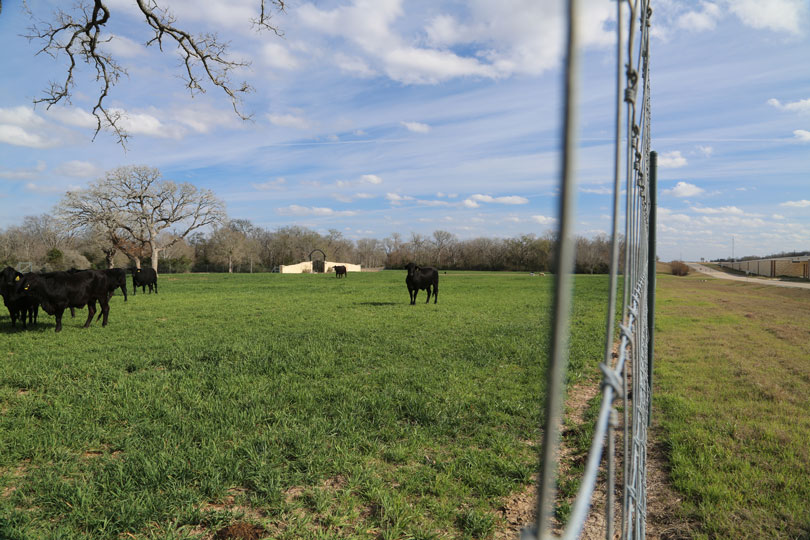By Jessica Domel
Multimedia Reporter
Every year, millions of dollars in livestock are stolen from pens, pastures and barns across the nation. But what can Texas cattlemen and women do to mitigate the risk that their cattle, horses, sheep or goats will be next?
It all starts with locking your gate, frequently checking your property and keeping a good herd inventory, according to Scott Williamson, a special ranger and supervisor for the Texas and Southwestern Cattle Raisers Association (TSCRA).
“Thieves target places (with) either absentee owners or (where) it is very evident that they are disorganized enough that they don’t realize how many cattle they have or where their property is parked,” Williamson said in an interview with the Texas Farm Bureau (TFB) Radio Network.
If it takes someone several weeks or months to realize livestock or property, like a trailer, is missing, the likelihood of finding any evidence to link to the crime is greatly diminished.
Williamson said that makes it much more difficult for law enforcement officials to track down what was taken.
Keeping good fences and knowing your neighbors are also helpful when livestock get out or are stolen.
“I would say a high percentage of livestock thefts are where the livestock actually get out onto another property or get out onto a county road and somebody is able to just pick those up and take them off and there is no evidence,” Williamson said. “The crime scene may never be able to be located.”
Williamson recommends branding livestock and using ear tags that made identification, both on and off the property, easier.
“In most cases, that is a must. For instance, if you just told me, ‘I need you to go find the white Ford half-ton pickup,’ it would be impossible because they’re everywhere,” Williamson said. “If you call me and say, ‘I’m missing a black cow,’ she’s just a black cow. The chances of me finding that animal are pretty well zero unless there’s a rare occurrence that we have a known suspect, locate the animal and have the ability to go back and DNA test against parentage.”
Ear tags, even if taken out, can mean the difference between finding stolen livestock and never seeing them again.
“For my definition, the license plate for that animal is that registered brand so that it can be identified as belonging to that owner. I love ear tags. It’s true that a thief will cut that ear tag out most likely, but it gives us evidence such as the type of tag, whether it was a spade tag or a button tag, whether that’s a round hole or a cut hole, whether it was torn out, cut out,” Williamson said.
If TSCRA Special Rangers find the ear tag in a pen or trailer, that’s evidence they can use to possibly locate the missing livestock.
“And when there are just incidental occurrences of cattle getting out, getting across onto a neighbor, it is a much easier identification,” Williamson said. “If I just walk out and I’ve got a bunch of green-tag steers and I walk out there and see a red tag, it will automatically flag me to go figure out what that animal is and get him home if I’m an honest operator and neighbor.”
Having cattle pens or keeping equipment near a busy roadway is also a risk, Williamson said.
“It’s not a bad operational practice to feed cattle or have water in the pen. I understand that, particularly with labor cost and the availability of labor, but keep those away from the public access as much as possible,” Williamson said. “In other words, don’t build the pens where they bump up against the county road—where you could actually load off of the county road—or where people could drive by, see the cattle laid up around the water trough in the pens. They could slip somebody out of a pickup, step over, close the gate and be done.”
If pens are further away from the road, a would-be thief would have to cut a lock, go into the property, find the pens, get livestock into the pens, load them and exit the property—all while risking being caught.
Make sure your fences are stable, Williamson said. He also encourages landowners to use locks.
“I understand as much as anybody the aggravation of having a lock, and I understand that a thief will just come cut the loc

